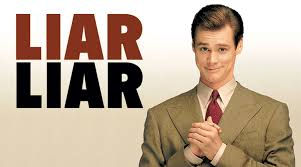Candour in High Performing Teams
- Jack Fleming
- Mar 10, 2021
- 3 min read
"Lack of candour blocks smart ideas, fast action and good people contributing all the stuff they've got. It's a killer." - Jack Welch, Winning

"The problem that season was that there were too many strong personalities in the dressing room. We didn't communicate properly because we were too afraid of upsetting each other." - Zinedine Zidane, Real Madrid
Ric Charlesworth, former Head Coach of the Australian mens Hockey Team said the same thing about his culture at the 2012 London Olympics - the culture I thought we had was not accurate. We didn't have the comfort for players to be truly honest with each other, to speak up when needed on the field to solve problems without the coach.
There are so many decisions to be made on the field or court without the coach, do your players have the confidence and safety to speak up with true candour?
Where do problems build up in families or relationships? Lack of candour, people sweep issues underneath the rug and hope that they will go away.
But eventually they build up, like mould that intoxicates your whole environment.
What is Candour?
Or Candor, for all you North Americans out there.
Candour is merely the quality of straight forward honesty and frankness so people know where they stand. David Calhoun, President and CEO of Nielsen explains the simplicity of candour below.
Why Candour is Hard
If you ever have seen Liar Liar with Jim Carrey, you'll notice and understand the discomfort with people have around the truth. We have been taught from a young age that it's more important to fit in with the identity of the group than be honest.

When Fletcher Rede walks down the hallway of the office and a bigger man in a suit asks "What's up Fletcher?" and he responds with 'Your cholesterol' you can see the shock around him with the brutal honesty.
We are socially conditioned to think that being candid is rude and we should protect people, but candour is actually about self interest and making your own life easier. You are living on a foundation or real honesty not tap dancing around the truth.
It doesn't telling everybody what you think all the time, without a relationship to fall back on - but living out the discomfort it takes to get the best out of everybody.
Question for Everybody to Ask
"How many of you have received an honest, straight between the eyes feedback session in the last year, where you came out knowing exactly what you have to improve and where you stand in the organisation?" - Jack Welch
As the coach, how many of these have you given?
This entails tough conversations, not easy ones.
Ideas for Building Candour in Your Team
1. Asking for Help - what feedback can you give me on my own coaching?
2. Asking - what behaviours of yours are hurting the team the most currently?
3. Player Surveys - peer evaluations of their team mates and presenting those results without fear but discussion for solutions.
3. Role Conversation - what do you do well, for the best of the team that we need you to do more of? Where does that sit among the other players?
4. Player First, Player Last - inviting input and opinion from the players at the beginning and the end of meetings or discussion, with the coach filling in the gaps in the middle.
5. Asking Better Questions - are they open ended with opportunity for thoughts and feelings to be expressed? Or are they a pretend question, so you can impart your own knowledge?
6. Celebrating Small Wins - exaggerate and pointing out when somebody has been truly honest with another team mate, in a positive or negative way.

"Yes everyone agrees that candour is against human nature. So is waking up at 5am in the morning for the 6:10 train every day. But for the sake of your team or your organisation you do a lot of things that aren't easy. The good thing about candour is that it's an unnatural act that is more than worth it." - Jack Welch, Winning
Thanks for reading! Jack







Comments